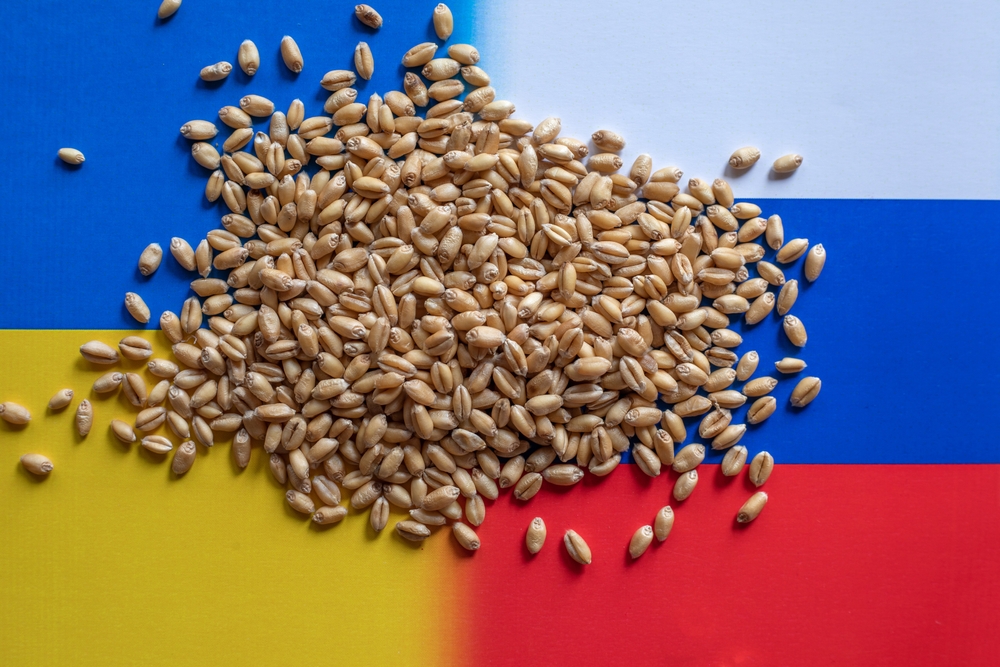The extension of a deal allowing the safe Black Sea export of Ukrainian grain and fertilizers beyond May 18 hangs in the balance after Russia issued a list of demands linked to a related agreement on its own such exports.
Here are details on the deals brokered by the United Nations and Turkey and signed in Istanbul in July last year, along with Russia’s demands and U.N. efforts to appease Moscow.
UKRAINE BLACK SEA GRAIN EXPORT DEAL
Brokered by the United Nations and Turkey, the deal has so far allowed Ukraine to safely export more than 27 million tonnes of grain from several of its Black Sea ports. Under the deal:
– Russia, Ukraine, Turkey and the United Nations set up a Joint Coordination Centre in Istanbul, staffed by officials from each party.
– Ukraine can safely export grain and related foodstuffs and fertilizers, including ammonia, from the ports of Odesa, Chernomorsk and Yuzhny.
– all activities in Ukrainian territorial waters are under the authority and responsibility of Ukraine.
– the parties agreed not to undertake any attacks against merchant vessels and other civilian vessels and port facilities covered by the deal.
– to prevent provocations and incidents, movement of vessels transiting the maritime humanitarian corridor is monitored remotely. No military ships, aircraft or drones can approach within 10 nautical miles of the corridor without JCC authorization.
– All merchant vessels are subject to inspection inbound and outbound from Ukraine by a JCC team in Turkish harbours.
– The agreement was agreed to remain in effect for 120 days and be extended automatically for the same period, unless one of the parties notifies the other of the intent to terminate the initiative, or to modify it.
– The deal was extended in November for 120 days and then in March for at least 60 days.
DEAL TO PROMOTE RUSSIAN FOOD AND FERTILIZER EXPORTS
To help persuade Russia to allow Ukraine to resume its Black Sea grain exports last year, a separate three-year agreement was also struck in July last year in which the United Nations agreed to help Russia with its food and fertilizer exports.
Under the memorandum of understanding:
– Russia agreed to continue commercial supplies of food and fertilizers and inform the U.N. of any impediments to such exports, including fertilizer raw materials like ammonia. Russia agreed to facilitate the unimpeded export of food, sunflower oil and fertilizers from Ukrainian-controlled Black Sea ports.
– the U.N. agreed to continue efforts to facilitate transparent unimpeded global access to Russian food and fertilizers, including fertilizer raw materials like ammonia. This includes dealing with finance, insurance or logistics impediments and ensuring such exports are effectively exempt from any unilateral measures.
– Russia and the U.N. will inform each other in writing three months in advance it they intend to stop the agreement.
RUSSIA’S DEMANDS
In a letter to U.N. officials on March 16, Russia’s U.N. Ambassador Vassily Nebenzia said Moscow would only consider extending the Ukraine Black Sea grain export deal beyond May 18 if the following “systemic problems” were resolved:
– returning the Russian Agricultural Bank (Rosselkhozbank) to the SWIFT payment system.
– a resumption of supplies to Russia of agricultural machinery and spare parts.
– lifting restrictions on insurance and access to ports for Russian ships and cargo.
– the resumption of an ammonia pipeline from Russa’s Togliatti to Odesa in Ukraine.
– unblocking accounts and financial activities of Russian fertilizer companies.
U.N. EFFORTS
U.N. spokesperson Stephane Dujarric said last week that U.N. officials were “trying to doggedly move the process forward,” but noted that Antonio Guterres had little power.
“The secretary-general has no authority over SWIFT. He has no authority over member states that impose unilateral sanctions. He has no authority over insurance companies, shipping companies. He can’t tell them what to do,” he said.
“We’re trying to herd a whole group of people,” added Dujarric.
The United States has pushed back on Moscow’s demands, saying “the only prohibitions on food and fertilizer exports from Russia are those imposed by the government” of Russia.



